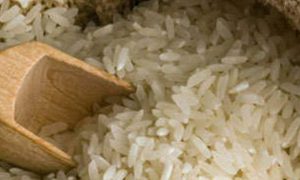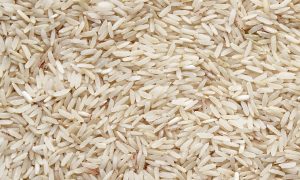PAU to join hands with IRRI to develop dwarf rice varieties

“Punjab Agricultural University (PAU) seeks collaboration with International Rice Research Institute (IRRI) to develop dwarf rice varieties for paddy straw management, high yield, and water efficiency. PAU delegation, led by KAP Sinha and Dr. Satbir Singh Gosal, visited IRRI’s South Asia Regional Centre in Varanasi to strengthen ties. They aim for advanced technology assistance in soil health, crop mapping, and joint research projects. The delegation explored IRRI’s facilities, including speed breeding and GIS labs.”
Ludhiana: Punjab Agricultural University (PAU) is exploring to join hands with International Rice Research Institute (IRRI), which played a key role in the ‘green revolution’ in Punjab, to develop dwarf rice varieties for paddy straw management, high yield and water use efficiency. A delegation from Punjab, led by KAP Sinha, special chief secretary Punjab, and Dr Satbir Singh Gosal, PAU vicechancellor, visited the International Rice Research Institute (IRRI), South Asia Regional Centre (ISARC), in Varanasi, to strengthen the collaboration of both institutes.
RRI, which has its headquarter at Los Baños, Laguna, in the Philippines, opened its south Asia regional centre in Varanasi a few years ago. Dr Satbir Singh Gosal said it was IRRI that had given IR-8, a dwarf variety of paddy, and this was the reason behind high production of rice in Punjab during the green
revolution. “The institute has advanced, upgraded and latest technology. We have requested them to work together to develop short duration dwarf variety, which requires less water and gives high yield. Lesser the height of paddy, lesser the stubble. Therefore, the dwarf varieties will also be helpful in stubble management,” said Dr Gosal. Not only the dwarf varieties, but PAU has also asked for IRRI assistance in soil health and crop mapping.
formation of the area covered under a crop and area hit with floods without visiting the site. We have asked for its help to develop such technology here and to do crop mapping,” said the V-C. Besides, the PAU will also carry out research on water management, climate change adaptation, disease and pest management, paddy straw management, environmental protection and root-trait breeding. The
delegation met with Dr Sudhanshu Singh, director of IRRI South Asia Regional Centre (ISARC), and deliberated with the scientists to explore potential collaborations in developing new research facilities, capacity building, and joint research projects.
The Punjab delegation, which visited the institute included commissioner of agriculture Mrs. Neelima, director of agriculture Punjab Jaswant Singh, and PAU experts Dr Jagjeet S Lore, Dr Buta Singh, Dr Nitika Sandhu, and Dr Vishal Bector. The team toured IRRI’s advanced facilities, including the speed breeding lab, GIS lab for sensor-based crop monitoring, spectroscopy lab, and rice grain quality evaluation lab.
















